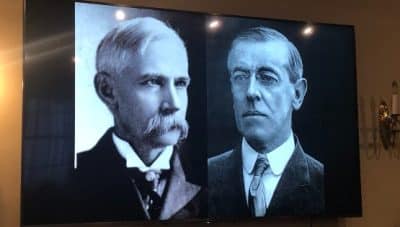
On April 30, 2014, a train carrying crude oil derailed in Lynchburg along the James River, resulting in a fire in the downtown area and the release of approximately 20,000 gallons of crude that burned off and leaked into the James. In the wake of April’s derailment, the Senators urged DOT to move forward with the rulemaking process to improve the safety of oil trains and protect Virginians from disastrous accidents.
In their joint letter in May, the Senators called on DOT to implement advance notification and information sharing procedures between state and local level emergency officials to better prepare local first responders in the event of a hazardous material incident. In addition, Senator Warner brought together more than 80 federal, state and local officials in Richmond to discuss ways to improve the safety of oil trains in June.
The Senators strongly support DOT’s proposed codification of the emergency order that requires trains containing one million gallons or more of crude oil to notify affected states about their travel routes. However, they request DOT extend those notification requirements to trains containing other highly flammable and dangerous substances such as ethanol and chlorine.
The Senators also urged DOT to work with stakeholders to develop a secure online portal to give local first responders and official emergency personnel direct access to real-time data on crude oil shipments. Additionally, in response to DOT’s request for input regarding tank car design and safety standards, the Senators urged that stronger tank car safety standards be put in place and that older tank cars more prone to puncture be retrofitted or phased out of use.
DOT announced its Notice of Proposed Rulemaking on July 23, 2014, asking for public comment on its proposal by Sept. 30th. After reviewing the comments, DOT will move forward with the next step in finalizing the new rules, possibly be the end of the calendar year.










